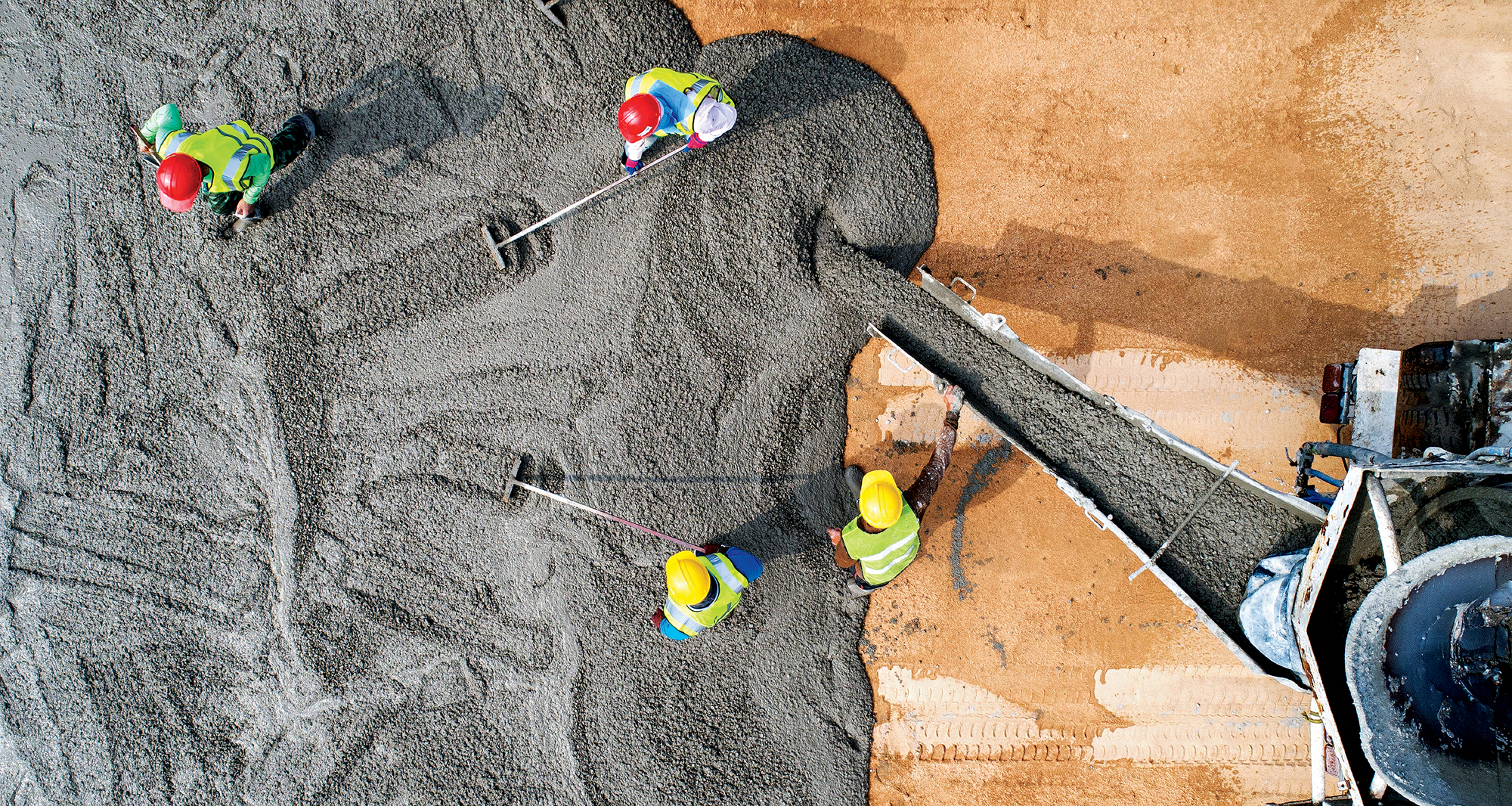Innovative Concrete Design: Improve Your Residential Property with Personalized Concrete Job
Innovative Concrete Design: Improve Your Residential Property with Personalized Concrete Job
Blog Article
Unveiling the Eco-Friendly Advantages of Utilizing Recycled Concrete in Sustainable Building And Construction Practices
In the realm of lasting building practices, the application of recycled concrete stands as an essential yet usually underestimated resource. Past its standard applications, recycled concrete offers a myriad of eco-friendly benefits that extend far past the confines of typical building products.
Environmental Advantages
By incorporating recycled concrete into construction techniques, there is a substantial reduction in the need for brand-new raw materials, leading to preservation of natural sources. Furthermore, the usage of recycled concrete reduces the amount of waste being sent out to landfills, consequently minimizing environmental air pollution and easing the stress on landfill capacities (Concrete).

In addition, the production of standard concrete is a considerable source of carbon exhausts because of the energy-intensive procedure of cement manufacturing. In contrast, recycled concrete has a lower carbon impact as it lowers the need for new concrete production. This decline in carbon exhausts contributes to mitigating climate change and sustains sustainable construction practices. In general, the environmental advantages of utilizing recycled concrete are substantial and play an important function in advertising eco-friendly building and construction techniques.
Cost-Efficiency
Accomplishing cost-efficiency is a vital factor to consider when examining the utilization of recycled concrete in building and construction projects. Among the key benefits of making use of recycled concrete is its cost-effectiveness compared to standard concrete. The manufacturing of recycled concrete entails less energy and sources as it utilizes existing materials, minimizing the overall job prices considerably. In addition, the availability of recycled concrete in your area can better lower transportation costs, making it an extra cost-effective selection for building tasks.
Furthermore, using recycled concrete can bring about savings in landfill costs by diverting concrete waste from disposal sites. This not only decreases the environmental impact however likewise removes the prices connected with waste elimination. The longevity and performance of recycled concrete are comparable to standard concrete, ensuring that cost financial savings do not compromise the quality of the building and construction.
Durability and Toughness
Considering the substantial cost-efficiency advantages of using recycled concrete, it is necessary to analyze its sturdiness and toughness in building and construction applications. Recycled concrete offers similar, if not exceptional, toughness and strength properties to traditional concrete. Through developments in processing techniques and top quality control, recycled concrete can satisfy or surpass the performance criteria of traditional concrete. The procedure of recycling concrete involves squashing, arranging, and screening old concrete to create aggregates that can be made use of in brand-new building and construction jobs. These recycled accumulations are capable of providing satisfactory compressive toughness, toughness, and long-term efficiency.

Waste Reduction
When it comes to using recycled concrete, waste reduction is a key benefit that adds significantly to ecological preservation. By integrating recycled concrete into construction projects, this waste is repurposed and diverted from land fills, lowering the general ecological effect of building and construction tasks.
Furthermore, the usage of recycled concrete can lead to cost savings for building tasks, as it is frequently extra cost effective than sourcing and moving brand-new products - Concrete. In final thought, waste decrease via the application of recycled concrete is a vital element of sustainable building and construction techniques that profits both the building and the environment market as a whole.
Energy Preservation
When it comes to utilizing recycled concrete in building, considerable energy financial savings are achieved compared to typical concrete manufacturing. The process of generating recycled concrete entails squashing and reusing existing concrete products, which eats much less energy than mining, processing, and carrying raw materials for new concrete production.
Conclusion
In verdict, the use of recycled concrete in sustainable construction methods uses various ecological advantages, cost-efficiency, toughness, stamina, waste reduction, and power conservation. By incorporating recycled concrete right into building projects, we can contribute to he said an extra lasting and eco friendly future. It is essential for the building and construction market to focus on the use of recycled materials to help in reducing the environmental effect of construction tasks.
One of the crucial benefits of making use of recycled concrete is its cost-effectiveness compared to typical concrete.Additionally, the usage of recycled concrete can lead to cost savings in landfill prices by diverting concrete waste from disposal sites. The durability and efficiency of recycled concrete are similar to traditional concrete, making certain that price savings do not jeopardize the top quality of the building and construction.

Report this page